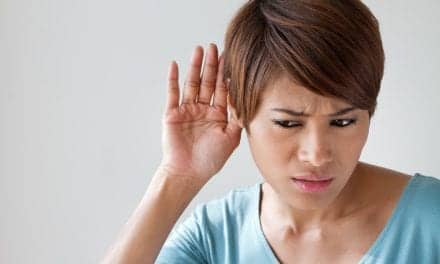Baltimore — A new study from Johns Hopkins School of Medicine researchers reveals that nearly a fifth of all Americans, 12 years or older, have hearing loss so severe that it may make communication difficult. The researchers also found that women and blacks are significantly less likely to have hearing loss.
The new findings, published in the Archives of Internal Medicine, are believed to be the first nationally representative estimate of hearing loss and an indication that hearing loss affects more people in America than was previously estimated.
Study leader Frank Lin, MD, PhD, an assistant professor with dual appointments in both the Department of Otolaryngology-Head & Neck Surgery at the Johns Hopkins School of Medicine and the Department of Epidemiology at the Johns Hopkins Bloomberg School of Public Health, explains that several previous estimates of hearing loss focused on various cities or populations, such as children or elderly patients. However, no estimate successfully encompassed the entire United States.
Consequently, Lin and his colleagues used data from the National Health and Nutritional Examination Survey (NHANES), a research program that has periodically gathered health data from thousands of Americans since 1971. The researchers analyzed data from all participants age 12 and over whose hearing was tested during NHANES examinations from 2001 to 2008. Unlike previous estimates, NHANES includes men and women of all races and ages, from cities scattered across the country, so it’s thought to statistically mimic the population of the United States.
Using the World Health Organization’s definition for hearing loss (not being able to hear sounds of 25 decibels or less in the speech frequencies), the researchers found that overall, about 30 million Americans, or 12.7% of the population, had hearing loss in both ears. That number jumps to about 48 million, or 20.3%, for people who have hearing loss in at least one ear. These numbers far surpass previous estimates of 21 to 29 million.
Hearing loss prevalence nearly doubled with every age decade. However, another key revelation was that women and blacks are significantly less likely to have hearing loss at any age. Lin and his colleagues aren’t sure why these groups appear to be protected. However, he notes that the female hormone estrogen, as well as the melanin pigment in darker skin, could have a protective effect on the inner ear, topics they plan to research in future studies.
Other researchers who participated in this study include John Niparko, MD, of the Johns Hopkins University School of Medicine, and Luigi Ferrucci, MD, PhD, of the National Institute on Aging.
SOURCE: Johns Hopkins School of Medicine



